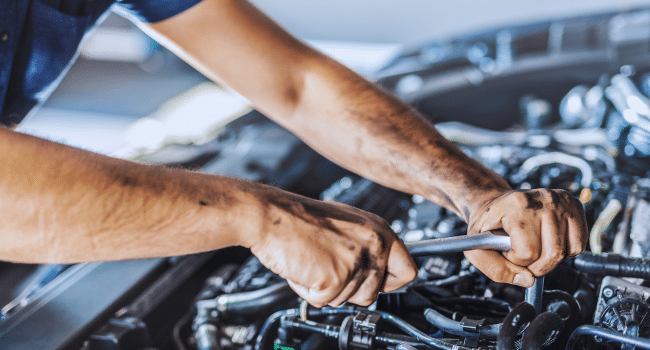Table of Contents
Your vehicle’s engine is the heart of its performance, but over time, wear and tear can take a toll on its efficiency. Understanding the common causes of engine wear and how to prevent them is key to prolonging the lifespan of your vehicle and maintaining optimal performance.
Understanding Engine Wear
Engines are complex mechanical systems made up of numerous moving parts that must work in perfect harmony. Every time you start your car, combustion occurs, generating heat and friction that gradually degrades components. Over time, parts such as piston rings, bearings, camshafts, and crankshafts experience wear due to metal-to-metal contact, contamination, and thermal expansion. If left unchecked, excessive wear leads to reduced efficiency, increased emissions, and even total engine failure. However, with proper maintenance and preventative measures, you can significantly slow this process and keep your engine running smoothly for years.
Causes of Engine Wear
1. Poor Lubrication
One of the leading causes of engine wear is inadequate lubrication. The engine contains multiple moving parts that generate friction, and without sufficient lubrication, these components wear down faster. Poor-quality or old oil can lead to increased friction, overheating, and potential engine failure.
2. Dirt and Debris Contamination
Engines are susceptible to contamination from dirt, dust, and metal particles that accumulate over time. These contaminants can damage critical components such as piston rings, bearings, and cylinders, leading to decreased performance and costly repairs.
3. Overheating
Excessive heat can severely impact an engine’s longevity. Overheating may be caused by coolant leaks, malfunctioning thermostats, or clogged radiators, leading to warping of engine components and reduced efficiency.
4. Frequent Short Trips
Short journeys where the engine doesn’t reach its optimal operating temperature can lead to excess moisture buildup, which dilutes engine oil and accelerates wear. This is particularly common in urban driving conditions.
5. Poor Fuel Quality
Using low-quality or contaminated fuel can introduce unwanted deposits into the engine, affecting the performance of fuel injectors, pistons, and combustion chambers. Over time, this leads to inefficient combustion and increased wear.
6. Delayed Maintenance
Skipping routine maintenance, such as oil changes, filter replacements, and inspections, results in accelerated wear and potential failures. Regular servicing is essential to detect early signs of trouble before they escalate.
How to Prevent Engine Wear
1. Use High-Quality Lubricants
A crucial step in engine protection is using premium automotive lubricants to minimise friction and wear. Products such as Super Lube automotive lubricants provide superior protection, ensuring smooth operation and extended engine life.
2. Change Oil and Filters Regularly
Routine oil and filter changes remove contaminants and ensure that the engine is properly lubricated. Check your vehicle’s manual for recommended intervals and always use manufacturer-approved oils.
3. Keep the Cooling System in Check
Prevent overheating by regularly inspecting the coolant levels, radiator, and hoses. Replacing old coolant and ensuring proper circulation can prevent heat-related damage.
4. Drive Efficiently
Avoid excessive idling, aggressive acceleration, and frequent short trips when possible. Allow the engine to warm up before driving and maintain a steady speed to reduce strain on engine components.
5. Use High-Quality Fuel and Additives
Investing in premium fuel reduces carbon deposits and enhances engine performance. Additionally, using fuel system cleaners can help keep injectors and combustion chambers free from harmful buildup.
6. Follow a Routine Maintenance Schedule
Sticking to a regular service schedule ensures that any minor issues are addressed before they turn into major problems. Checking belts, hoses, and spark plugs can prevent unexpected breakdowns and costly repairs.
Key Takeaway
Engine wear is inevitable, but with proper care and preventative measures, you can significantly extend the lifespan of your vehicle’s engine. Regular maintenance, quality lubricants, and mindful driving habits are key to keeping your engine running smoothly for years to come.
